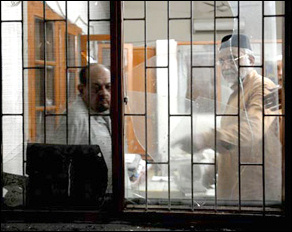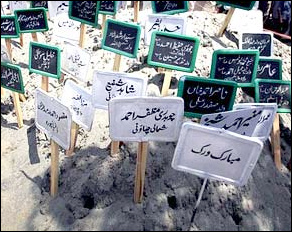
“We are all under threat. They will kill us. They will kill us,” claimed Rubina Saigol, repeating the conversation with members of the Ahmedi community a few months ago. Saigol, an independent social researcher, said that the community members wanted to show her some case files on Ahmedis and talk about the threats publicly.
“I feel guilty and terrible that I didn’t write – partly because of fear.”
But before Saigol could gather up any courage to take any action – the threats had become a reality.
On May 28, militants attacked two Ahmedi houses of worship in Lahore, which resulted in the tragic death of more than 80 people and left more than a 100 injured. Within days, other militants attacked Lahore’s Jinnah Hospital where the injured were still recovering from the first attack.
The Ahmedi massacre has left everyone in shock and the Ahmedi community crippled with grief.
The Ahmedis have struggled for rights within India, Pakistan, Bangladesh, Egypt, and Indonesia for many years.
Although the majority of the Pakistani population is Sunni – there is a growing percentage of people who are seriously questioning the Sharia laws and the constitution. The trend can be followed on local blogs and even the op-ed pages of local newspapers – the rhetoric challenges Sharia laws against the basic rights of a citizen.
Pakistan’s Sharia laws are based mainly on the Hanafi school of thought.
According to Sharia Law, an Ahmedi cannot be accepted as a Muslim or as part of an Islamic sect because one of the basic fundamentals of Islam is to accept Prophet Muhammad (pbuh) as the last prophet in Islam – in Quranic verses he is referred to as the “Final Seal” (al-azhab:40).
In several interviews with religious scholars, from Sunni and Shia schools of thought in Cairo and Q’um in Iran agreed that Ahmedis were not a Muslim sect. They went as far as calling them, “heretics” and “infidels.” As well as, if a non-Muslim shows and preaches under a Muslim façade, then he or she must be charged, proven guilty, and punished in court according to Sharia law, a crime which is punishable by death (wajib-ul-qatl).
But one of the scholars in Cairo, who requested to stay anonymous, was quick to add that if a non-believer is a citizen of an Islamic state then he or she becomes the zami (responsibility) of the state. Therefore, it is the state’s responsibility to protect them more than the Muslim citizen, out of fear for violence against them.
“They should be treated with the utmost respect, because we, as Muslims, need to set an example for them,” he said. “As a Muslim, your responsibility is to follow the basics of Islam and lead a good life – violence of any type against anyone is not an example of leading a good life.”
This one scholar, who remains anonymous out of fear for the repercussions he could face, is not alone.
As soon as the attack hit the news, blogs went up everywhere in an uproar; some immediately condemned the brutal attack, others wrote malicious comments about Ahmedis claiming them to be wajib-ul-qatl (deserving of death), and some tried to explain the causes of the attack through religious, political and social analyses.
On the blog pkpolitics there were many harsh comments and the owners of the blog removed those comments and posted a warning to respondents on abusive language.
One of the more kinder comments on pkpolitics was, “Brother, The Qadyani religion should not be even be called ‘Ahemdi religion’, for you know that the Last Prophet Muhammad is exclusively mentioned by the name ‘Ahmed’ both in the Holy Quran and in the Bible (sic).”
Another respondent scolded back, “I cant believe my eyes, Instead of completely condemning the attack and humiliating the attackers, some are debating on the words used and about Qadyani sect or religion whatever…. no wonder Pakistan is heading towards its doom day by day… shame on us (sic).”
Tazeen Javed, winner of Best Humor Blog category for Pakistan’s first Annual Blog Awards, blogs at A Reluctant Mind wrote, a social aspect of the attack holding everyone accountable, event the public, for the attack in “We all have blood on our hands.”
The Waking Life blog posted, “Is it all worth?” questioning Muslims who asked for tolerance in other parts of the world, wrote, “Time to put things in perspective…Facebook may have partaken in blasphemy but there’s plenty of it going on in our cities and society. How about cleaning our own house first? (sic)”
The popular and controversial blog, Café Pyala, which sometimes uses profanity, condemned the attack in the political analysis “Original Sin:” “Truly, if ever there was short-sightedness among Pakistan’s establishment (and there are plenty of examples of it) this was it…The nurturing of extremist thought during Zia ul Haq’s (mis)rule and its repercussions in the shape of today’s barbaric attacks (and earlier targeting of Shias, Hindus and Christians) are a logical continuation of the original sin. (sic)”
Most editorials and columnists for print media did not have to directly respond to profanity like some online media blogs, however they condemned the attack, pointing out the government’s blatant disregard for protecting minorities, and feeding a culture of bigotry.
The Dawn editorial “Culture of Intolerance” wrote, “Religious minorities in Pakistan have not only been shunted to the margins of society but also face outright persecution on a regular basis…the state, meanwhile, remains largely unmoved by the plight of minorities — and that isn’t surprising either for it is a party to this persecution.”
Columnists did not try to hide the humiliation the government as well as the public should feel over the attacks.
Columnist Kamran Shafi, who writes for Dawn, wrote in A sad place, indeed that he recalled a time when there was no religious distinction, just Pakistani citizens. He stated, “The Ahmedis might be considered non-Muslim by the state; surely they are still Pakistani?”
Shafi added that an important member of the Ahmedi community told him that the compensation that was offered to the victims of the attack would be kindly refused and asked to be transferred over to the people of Hunza-Gojal for the relief work.
These voices of different generations and backgrounds of growing tolerance are currently at a grass-roots level, but they can still be heard, even in some political circles.
On the day of the attack, Punjab’s Chief Minister Shahbaz Sharif held a press conference addressing the attack and the efforts of the police. Even though his offices had received reports on a threat to the Ahmedis several days prior to the attack.
While soon after the attacks, Interior Minister Rehman Malik was the only government official who personally went to visit the Ahmedi community to give condolences
Shahbaz Sharif has yet to visit the Ahmedi community since the attacks.
Although most recently, PML-N party leader Nawaz Sharif did condemn the attacks and named Ahmedis as “brothers” and “sisters.” Only for him to be threatened by religious leaders with an anti-Sharif campaign in the region.
If the public’s reaction has mobilised the government to react at all then it leads to the most important question: What is the next step?
Imam Shamsi Ali might have the answer.
“It is very difficult to accept the nature of the world we live in – part of this world is the freedom of expression. I oppose the idea (Ahmedi movement) but I cannot impose my ideas on anyone. I have no right to impose my ideas on anyone,” said Imam Ali.
Ali, who lived and studied Islamic Studies in Islamabad for seven years, is the leader for the 96th street mosque and runs the Islamic Cultural Center in New York.
“We need engagement. If we oppose those claims then we must have intellectual discourse. If we engage with Hindus, Christians, Jews, or Buddhists, then why cannot we talk to them?”
Ali, ultimately, feels that restricting the freedoms of a people is not the way of Islam, rather allowing people their freedom and showing tolerance is way for people to find the path to Islam.
Sadef A. Kully is a Reporter/Associate Producer for Dawn.com
©2010 DAWN Media Group. All rights reserved
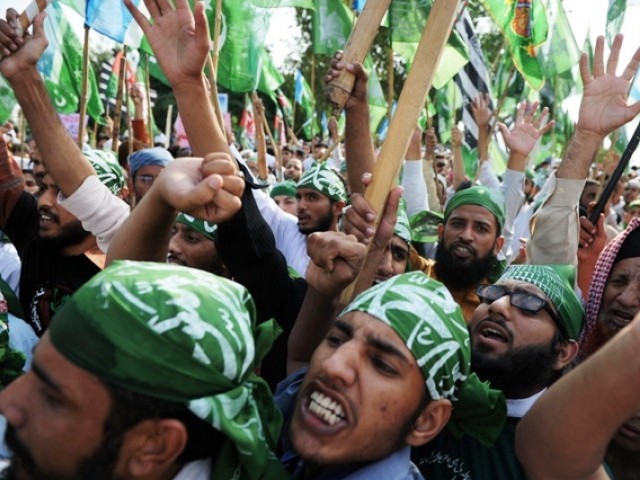




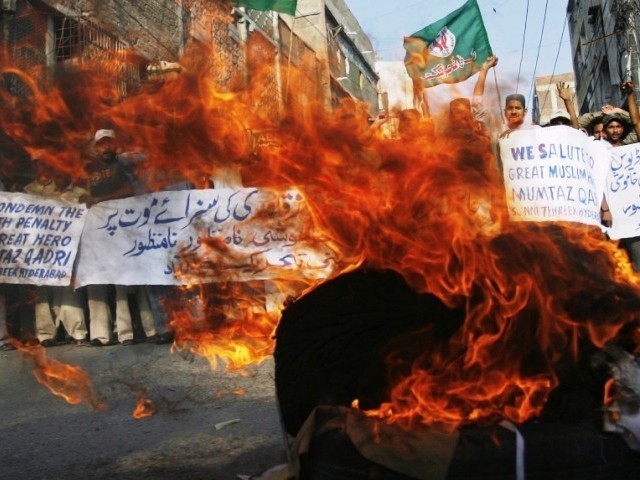



 Jinnah’s Pakistan, hijacked by clerics
Jinnah’s Pakistan, hijacked by clerics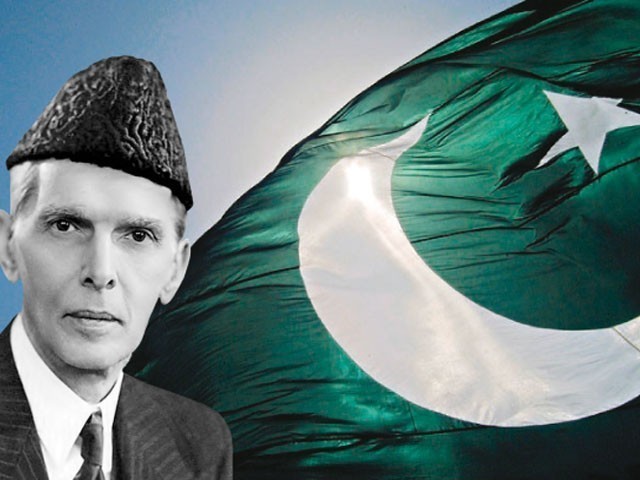
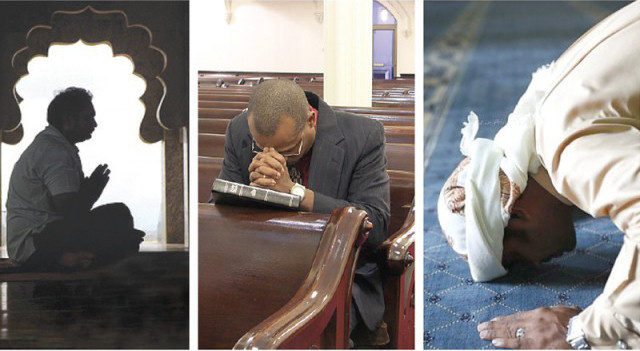
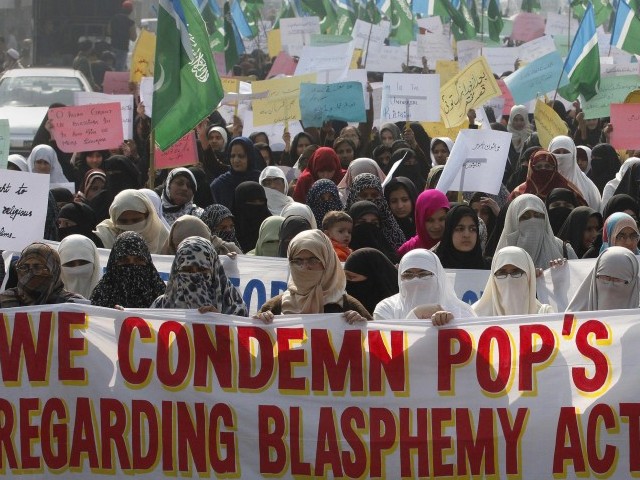




 “We are all under threat. They will kill us. They will kill us,” claimed Rubina Saigol, repeating the conversation with members of the Ahmedi community a few months ago. Saigol, an independent social researcher, said that the community members wanted to show her some case files on Ahmedis and talk about the threats publicly.
“We are all under threat. They will kill us. They will kill us,” claimed Rubina Saigol, repeating the conversation with members of the Ahmedi community a few months ago. Saigol, an independent social researcher, said that the community members wanted to show her some case files on Ahmedis and talk about the threats publicly.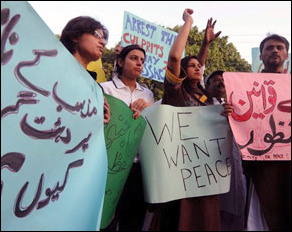 Life in the neighbourhood, where two Ahmedi places of worship in Lahore were attacked by terrorists on May 28, goes on but under a shadow of fear.
Life in the neighbourhood, where two Ahmedi places of worship in Lahore were attacked by terrorists on May 28, goes on but under a shadow of fear.